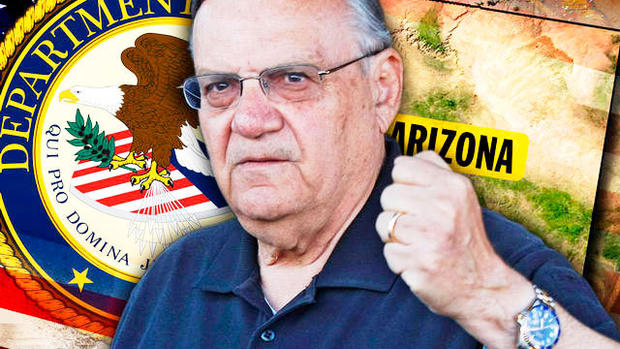Trial examining Ariz. Sheriff Joe Arpaio nears end
(CBS/AP) PHOENIX - Testimony is set to end Thursday at a trial aimed at settling allegations over whether Maricopa County Sheriff Joe Arpaio's office racially profiles Latinos in its immigration patrols.
Witnesses at the trial have included Arpaio, Latino motorists who said they were targeted in traffic stops because of their race and deputies who denied using race as a factor in pulling over drivers.
Lawyers will not orally make closing arguments, CBS affiliate KPHO-TV reports. Instead, the attorneys will present closing arguments to U.S. District Judge Murray Snow in written briefs that are due Aug. 9 and 16.
It's unknown when U.S. District Judge Murray Snow will issue his ruling.
Ariz. Sheriff Arpaio drops swagger in court
Joe Arpaio heads to court in racial profiling suit
On Tuesday, plaintiffs' lawyers rested their case.
"Plaintiffs have proven that the Maricopa County Sheriff's Office policies have both a discriminatory intent and a disparate impact on Hispanics," said plaintiffs' counsel Stanley Young. "We believe that the evidence justifies a finding of a violation of the U.S. and Arizona constitutions and also the federal Civil Rights Act."
Legal experts said the group of Latinos who brought the civil case have a high bar to clear to convince a judge that there was widespread discrimination in Arpaio's office.
The sheriff's immigration patrols are accused of racially profiling Latinos for stops.
Arpaio has denied the allegations, saying his deputies only make stops when they think a crime has been committed.
Defense lawyers for Arpaio and his office took the lead Tuesday. Their first course of business was to make a motion to dismiss the case, saying the plaintiffs did not present enough evidence to prove their point.
Snow denied the motion to dismiss, and the trial resumed.
The defense then called their first witness, Steven Camarota, who is a statistician and researcher from the Center for Immigration Studies. He criticized data presented during day one of the trial by a plaintiff's expert that concluded Latinos were much more likely to be stopped during saturation patrols than non-Latinos.
Camarota said important data was left out of the study, which made the analysis incomplete and the conclusions inaccurate.
As the defense wrapped its first day of testimony, a Maricopa County deputy took the stand. He stopped one of the witnesses who claimed that he was racially profiled during a stop.
The deputy denied ever asking that witness for his Social Security card or number, which the witness testified to making him believe he was being singled out because he was Hispanic.
The plaintiffs aren't seeking money and instead want a declaration stating that Arpaio's office engages in discriminatory practices and an order requiring policy changes.
